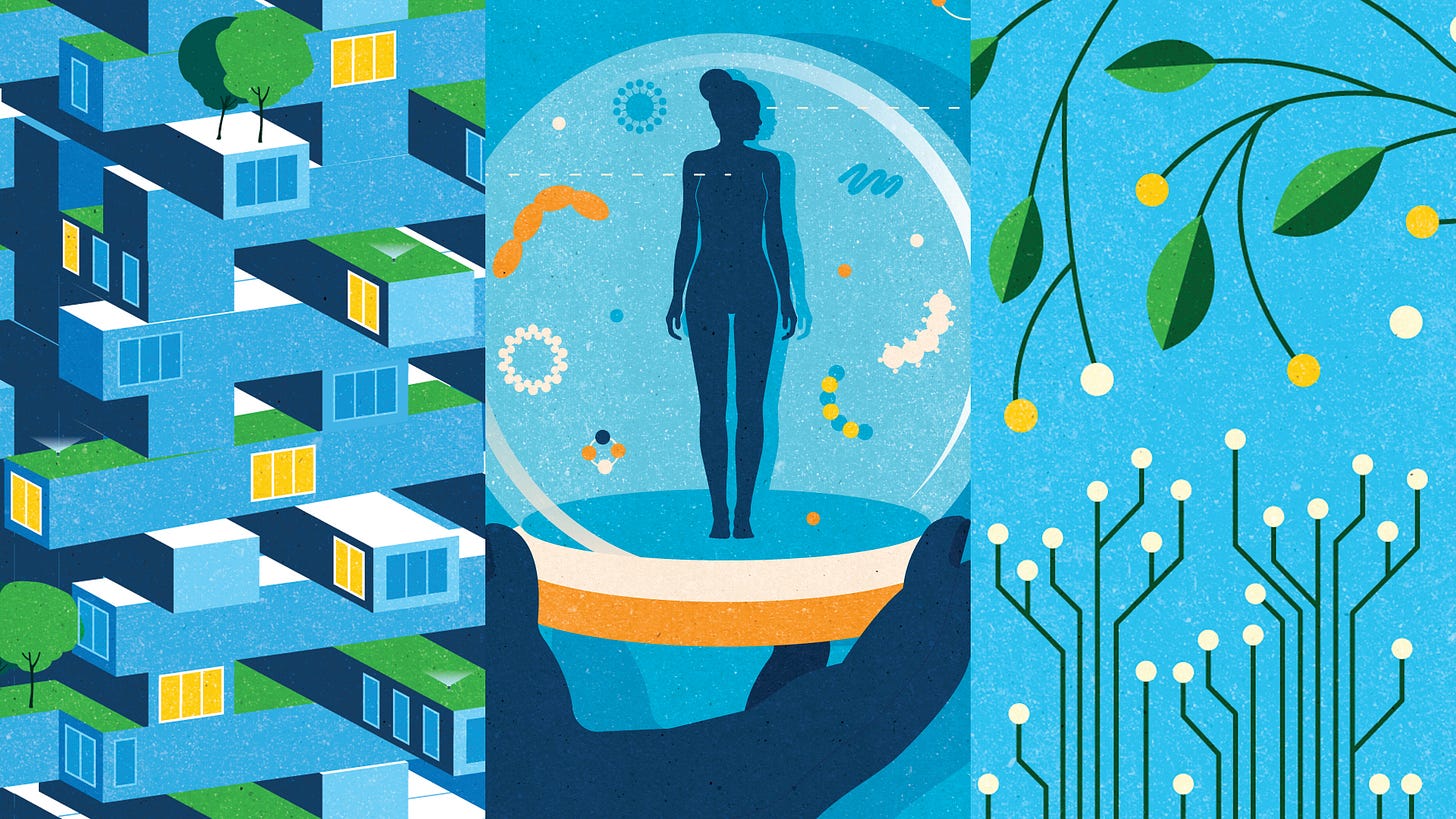CIFAR launches bold new lines of inquiry on the future of being human
The Canadian Institute for Advanced Research has just announced the the results of its third Call for Ideas -- and they all address the future of being human
Back in 2021 I was part of a small group brainstorming the theme for the next global call for ideas from the Canadian Institute for Advanced Research (CIFAR). The results of that process have just been announced— and I’m extremely excited by the work that’s about to begin!
CIFAR is a Canadian research organization that has a long track record of convening extraordinary thinkers from around the globe to address some of the biggest, most complex, and intriguing questions facing humanity. Just to give you a taste of their work, their programs on Learning in Machines and Brains, Gravity and the Extreme Universe, and The Brain, Mind, and Consciousness, have been transformative in AI development, furthering our understanding of the universe, and exploring the nature of consciousness and mind. And these are just three out of 15 quite incredible programs.
In 2021 CIFAR began work on a call for proposals for programs that would radically push the bounds of human knowledge and understanding, unconstrained by conventional disciplines and ideas. As a member of CIFAR’s President’s Advisory Committee, I was part of the small group developing the focus of the call.
We eventually landed on the theme of “the future if being human” (and no, it’s no coincidence that this blog and one of my initiatives at ASU have the same name — I was inspired by the process and the people involved in it!). The hope was that this would inspire groups to really push the boundaries of knowledge creation in creative and innovative ways.
The good news is that they did. Now that the announcement has been made, I can say that I’m incredibly excited to see where the three successful programs will take us.
They are, in no order of preference:
The Multiscale Human: This is an audacious program that seeks to understand the incredibly complex and dynamic system that make up the human body across multiple scales, from the molecular level to full organs, and to create an unprecedented map of the human body that will help drive transformative medical advances.
Humanity’s Urban Future: With more than 70% of the world’s population likely to be living in cities by 2050, it’s vital that we develop a better understanding of how we ensure this urban future is a vibrant and promise filled one — especially given the rate of change of social norms, political landscapes, physical environments, and technological capabilities. This is a monumental tasks as the cities of the future will likely depart from what has been successful so far. By studying what makes a “good” city of the future, the program aims to have a transformative impact on urban policy and planning, regulation and infrastructure, as well as inspiring collective deliberation and learning around how one should work towards a better urban future.
Future Flourishing: So much of what we do and how we think in the present is driven by the idea of human exceptionalism. But as we explore the future of being human, we have to extend our thinking and imagination beyond this. The Future Flourishing program brings together philosophers, historians, curators, conservators, artists and anthropologists to imagine what it will take to create a better world for all of the entities that make up humans and live with us.
This is transdisciplinary research, scholarship, and exploration on a scale that is vital to understanding what it might mean to be human as we navigate toward a future that is full of promise, and I’m incredibly excited (I may have said that already) to see where these programs lead.
Wherever this is, watch this space, because one thing is for sure — it’s not going to be dull!


